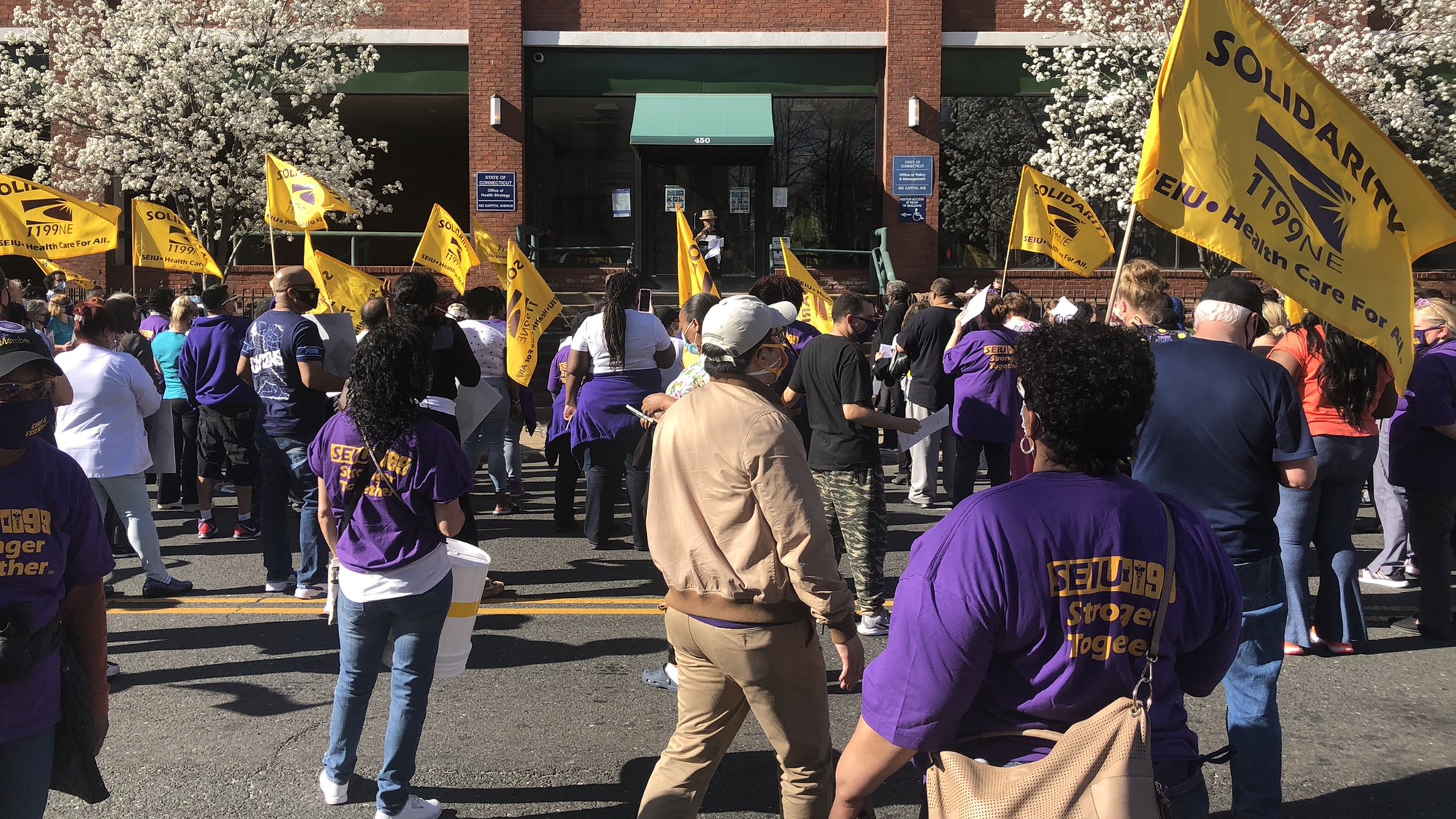Close to 2,800 nursing home workers will stage a walk-out on May 14 in Connecticut if the State government and nursing home chains do not meet their demands for improved wages and benefits, and safe working environments. Another 1,200 workers have also declared that they plan to strike later this month. The workers, organized by Service Employees International Union (SEIU), have been negotiating for months with nursing home operators with little progress.
The strike was first announced by SEIU-affiliated unions in 33 nursing homes, facilities run by four chains — Genesis (11), iCare (11), Autumn Lake (4) and RegalCare (7). These unions together represent over 3,400 healthcare workers. Earlier this week on Monday, another 600 workers from six other nursing homes voted in favor of a strike action from May 28, expanding the nurses’ mobilization.
But on Wednesday, May 12, unions at the seven RegalCare facilities, representing 600 workers, decided to delay their strike so as to continue negotiations. If the negotiations fail at RegalCare, they shall join the other 600 workers on May 28. Nevertheless, close to 2,800 workers are set to stage walkouts in the other 27 facilities on Friday.
According to SEIU’s New England Health Care Employees Union (District 1199 New England), which collectively represents these nurses and healthcare workers, contracts for over 5,000 nurses in 51 nursing homes across Connecticut had expired on March 15. Despite this, nursing home operators and the government are yet to announce any significantly improved contract offer.
An offer was made by Connecticut governor Ned Lamont of USD 280 million funding for the nursing homes sector, including close to USD 150 million for a gradual wage hike of 4.5% over the next two years. While the State government lauded itself for the package calling it “historic”, on Tuesday, unions rejected the offer for falling far short of their expectations.
The union is demanding the new contract to offer pathways for a USD 20 per hour wages, hazard pay, along with affordable and comprehensive healthcare plans, insurance plans, and retirement savings options, among other things. Workers are also demanding to fix the understaffing problem at nursing homes and bettering the ratio of caregivers to nursing home inmates.
In the meanwhile, Governor Lamont has already requested the National Guards to deploy forces to ensure the functioning of nursing homes, in case the nurses go ahead with the strike on Friday.
“We were abandoned”
Nursing homes were the worst affected by the COVID-19 pandemic in the State of Connecticut. Of the more 8,000 deaths reported due to the infection, close to 3,900 were in nursing homes, including 16 members of the District 1199 NE Union.
“Nursing home workers need to be recognized for their sacrifices, need to be put in a position where they live a life outside of poverty,” said Jesse Martin, vice-president of District 1199 NE, at a press conference on Monday.
A recent report titled ‘We Were Abandoned’ by District 1199 NE and the Worker and Immigrant Rights Advocacy Clinic (WIRAC) at Yale Law School, released on Monday, revealed major lapses in government regulation of nursing homes. The report found that despite repeated findings of nursing homes violating COVID-19 and quality regulations, the authorities did very little to bring those responsible to account.
“Despite the DPH’s [Connecticut Department of Public Health] own findings of flagrant violations of CDC [US Centers for Disease Control] guidelines in nursing homes, this report reveals that DPH leadership under the Lamont administration made little use of its primary enforcement tools,” reads the report.
Authorities only issued 34 citations between March 2020 and February 2021, imposing a total fine of USD 98,081 for these violations in all nursing homes. The report also found that the authorities charged very small fines for Class B COVID-19 violations, an average of USD 2,885 per violations, far lower than the upper limit of such violations and even below the average of USD 6,023 imposed elsewhere across different sectors in the state.
The report also found that the incomes of an average employee at nursing homes are below living wages. At a time when labor movements have been calling for USD 15 per hour minimum wage, the median income of an entry-level nursing home worker is at USD 13 per hour, and for a long-term worker stands at USD 16.1 per hour.





